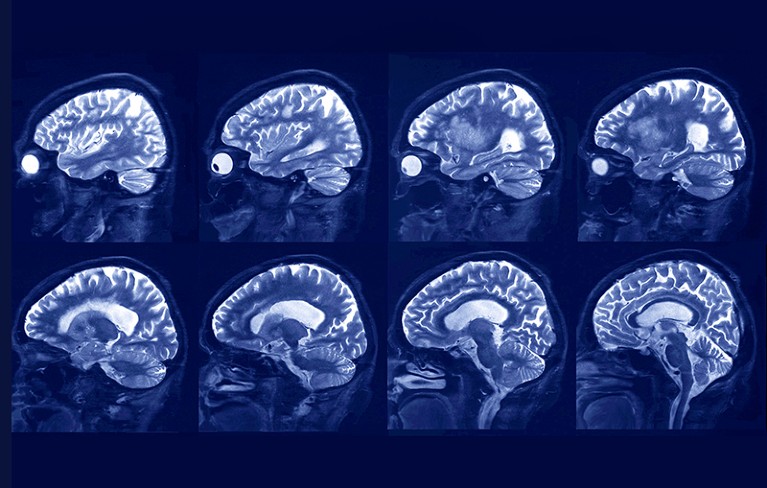
Finding treatments for Alzheimer’s disease will require detailed study of the human brain.Credit: Zephyr/SPL
For a small fold of tissue, the hippocampus has an outsized influence. It stores and retrieves human memories, capturing the life history that makes us who we are. It is also one of the brain areas most affected by Alzheimer’s disease, which robs people of those memories. And some research has hinted that new neurons might be born there throughout adult life, in a process called neurogenesis.
But this idea is hotly debated, in part because well-preserved samples of human brain tissue are rare, and techniques to identify immature neurons vary. Last year, a paper in Nature made the case that neurogenesis in the hippocampus is not seen beyond childhood in humans (S. F. Sorrells et al. Nature 555, 377–381; 2018).
A study published this week in Nature Medicine extends the controversial debate (E. P. Moreno-Jiménez et al. Nature Med. https://doi.org/10.1038/s41591-019-0375-9; 2019). Working with post-mortem brain tissue from healthy adults aged 43–87, the team reports seeing newborn neurons and a modest decline in neurogenesis with age.
By contrast, in brain tissue from people aged 52–97 who had Alzheimer’s disease, the group saw a sharper and progressive drop in neurogenesis. The results await critique and replication by other groups, but they raise a tantalizing possibility that halting or reversing this decline might slow Alzheimer’s.
Recent work has tested ways to promote the generation of neurons in the rodent hippocampus, such as exercise and certain drugs, and has shown that some of these approaches can lessen cognitive deficits in transgenic mouse models of Alzheimer’s. Researchers’ next challenge — a huge one — is to work out whether this could be translated to people.
Most of the research on Alzheimer’s-disease therapies has focused on targeting pathways that contribute to the accumulation of pathogenic amyloid-β and tau proteins. So far, nothing works well. Whether or not a focus on neurogenesis leads to a therapy, the latest study adds to substantial research suggesting that treatments for Alzheimer’s and other neurodegenerative diseases could be found by shifting attention away from the usual suspects to different targets. And that will require studying the rich biology — and every fold — of the human brain.

 Stop Alzheimer’s before it starts
Stop Alzheimer’s before it starts
 How to defeat dementia
How to defeat dementia
 Frustrated Alzheimer’s researchers seek better lab mice
Frustrated Alzheimer’s researchers seek better lab mice





